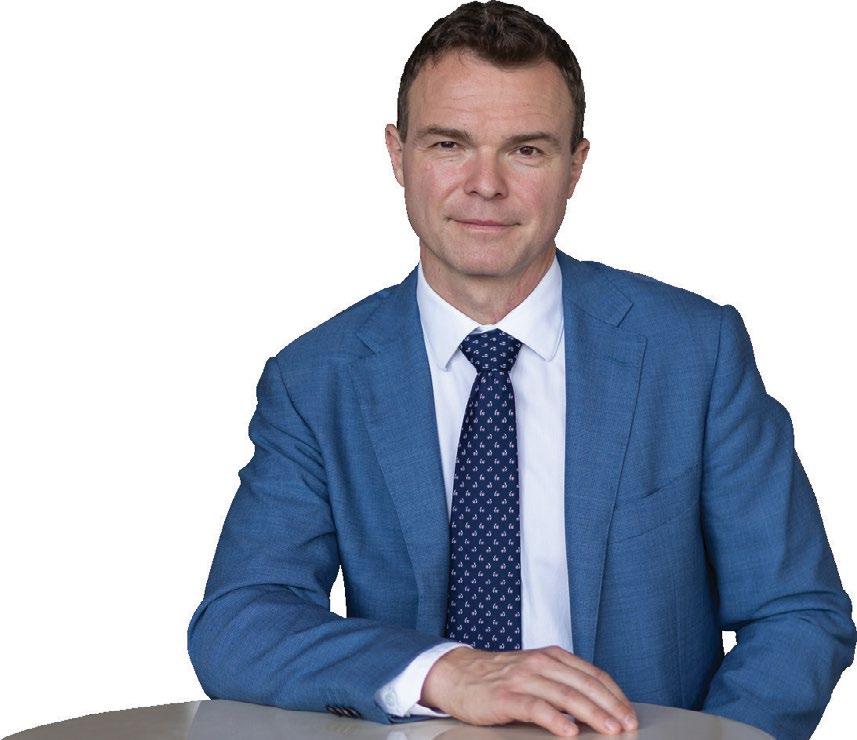
4 minute read
Telehealth but not for the bush
from NorDocs Winter 2021
by NRGPN
Australians with a disability and is funded by federal and state/territory governments. The $25 billion scheme rocketed back into the news recently with the suggestion that the Morrison government plans to change the way NDIS applicants are assessed.
The aim is to have NDIS interviews conducted by privately contracted allied health companies, rather than by applicants’ treating doctors, in order to “determine the significance of a person’s disability”.
Advertisement
As the interviews will run for three hours it seems the endurance of applicants, and where applicable their carers, will be tested as much as anything else.
This proposal, based on a report accepted by the government last year, has unleashed a storm of criticism. One of the original chiefs of the NDIS, Prof Bruce Bonyhady, said he was ‘totally opposed’ to the concept, calling it a ‘disgrace’, dubbing it ‘roboplanning’ in a reference to the government’s ‘robo-debt’ scheme that was found to be illegal, and saying it would ‘blow up the vision for the [NDIS] scheme’.
Opposition spokesperson Bill Shorten, an architect of the NDIS, also slammed the idea in a speech to the National Press Club. Predictably, the agency charged with running the scheme has defended the proposed changes. The vitriolic debate has come too late to be included in the Royal Commission’s report, and would not have been mentioned anyway, as the team is ‘yet to start our substantive inquiries into the safety and quality of services under the NDIS’.
Calling the NDIS ‘one of the most significant changes to social policy in Australia’, the report notes the ‘significance of the NDIS model to many areas of disability services, including homes and living and employment’, adding ‘this appendix [D] gives a short overview of the development of the scheme and its original intent’.
It adds parenthetically and somewhat tantalisingly, ‘(noting that this may differ from how the NDIS currently operates in practice’).
It is no secret that the NDIS is widely seen as under-performing, despite being
Telehealth services subsidised through Medicare will be extended until the end of December 2021, following an announcement in April by the Federal Minister for Health and Aged Care, Greg Hunt. In a pre-Budget announcement the government said that in the past year Telehealth had been ‘life changing for many in need of support’ and that as part of the 2021-22 Budget more than $114 million will be allocated to extending the program until the end of this year.
‘Telehealth items were rapidly implemented in March 2020 to ensure our primary care sector could continue to function and that Australians could continue to access important health services, Mr Hunt said. Dr Nathan Kesteven
‘Telehealth has played an important role in supporting Australians through the pandemic. The extension will ensure that Australians can continue to see their GP, renew scripts and seek mental health support from the safety of their own home. This allows vulnerable Australians to feel protected and supported during these unprecedented times.
‘It is critical that Australians continue to look after their health and stay engaged with our primary care providers.”
From 13 March 2020 to 21 April 2021, over 56 million COVID-19 MBS telehealth services were delivered to 13.6 million patients, with $2.9 billion in Medicare benefits paid. More than 83,540 providers have used telehealth services.
The extension of Telehealth includes services for general practitioners, medical practitioners, specialists, consultant physicians, nurse practitioners, participating midwives, allied health providers and dental practitioners.
The profession broadly welcomed the announcement in the May 2021 Budget of the Telehealth extension. However, rural GPs were disappointed at the removal of longer (Level C & D) telephone consultations while the equivalent video consultations remained. Internet access is limited in rural Australia, where even telephone reception is often flaky. The longer consultations compromised only 14 per cent of services under Medicare and their removal seems to unjustly target older rural patients.
Local GP and NorDocs Co-chairman, Dr Nathan Kesteven, sought the local Member for Page Kevin Hogan’s assistance in highlighting this concern. Mr Hogan has approached Health Minister Greg Hunt but was advised that the Department of Health is unswayed. The decision reflects advice to the Department to prefer video consultations over telephone alone.
regarded as a scheme vital for the wellbeing of people with disabilities.
With the Commissioners still gathering evidence, the jury remains out on the running of the NDIS, as well as on how to protect people with disability from abuse. So much so, in fact, that they have apparently asked the Prime Minister to grant a significant extension to the reporting deadline, from April 2022 to October 2022. At the time of going to press, no decision by the government has been forthcoming.
Whatever date prevails, the requested one or a compromise, implementing (or not) the Royal Commission’s many recommendations will fall mostly to the next Australian government, whether this will be Morrison mark 2 or another remains to be seen.
One thing does seem likely – the next volume of the report will be equally hefty.










